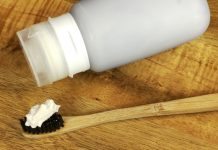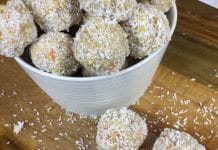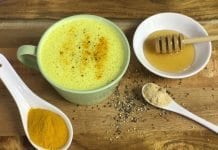I know I’m always saying I’m careful about what goes into my body but the on the flip side of that I’ve also had to think about what’s coming out. For some people, especially those who have had long term gut issues, watching bowel movements can become somewhat of a preoccupation. Constipation and Diarrhea: Is your bowel movement telling you something?
Read on to find out why the frequency, consistency, and color of your stool can be important markers of disharmony or disease.
Constipation
The more time that waste material spends in the colon, the drier it becomes. According to the Bristol Stool Scale, when stools are hard to pass, this may indicate constipation. When stools are lumpy and small or nut-sized, it can also be a sign that you could benefit from a speedier transit time.
There are 2 possible keys for constipation:
- Heat: Often means there is some degree of toxicity or inflammation in the body. Strong body and stool odors as well as excessive thirst could mean that your body is struggling to balance excessive heat.
- Stagnation: If your liver is not functioning properly and is not able to flush out toxins and excess buildup of hormones it can lead to constipation. One sign that the Liver may be involved is when constipation is accompanied by acid regurgitation or gas.
When constipation involves Liver energy, it is essential to address stress.
It’s quite possible for psychological stress to generate constipation.
Western physiology believes that digestion begins first in the mind. The sight, smell, and thought of food stimulate the release of neurotransmitters, which kick start digestion by increasing gastric acid in the stomach.
When we get stressed or enter fight-or-flight mode, all of this digestive activity comes to a halt! This is why the act of prayer before meals or even a quiet moment of gratitude is a practice that can optimize digestion and elimination.
 Diarrhea
Diarrhea
The Bristol Stool Scale characterizes loose stools or diarrhea as ranging from soft, fluffy masses to entirely liquid.
If you notice loose stools on a regular basis, this may be an indication of a deeper problem with the lining of the gut wall and your inner ecology. A gut healing protocol can begin to heal inflammation and correct any imbalance in gut bacteria. This means:
- Choosing vegetables that are either fermented or well-cooked over raw. Fermented vegetables are predigested, meaning the beneficial bacteria have done some of the work for you! Fermented vegetables also delivers a healthy dose of bugs to your digestive tract. Eating well-cooked vegetables will help with diarrhea as the fibre has been broken down. However don’t avoid raw foods and fiber entirely. Too much fiber can contribute to diarrhea or alternating with constipation. Too little fiber can result in constipation and the lack of food for all the good bacteria.
- Drink probiotic beverages. Another easy way to transform your inner ecology is to introduce active enzymes and living beneficial bacteria from probiotic beverages.
- Drink bone broth. Bone broth is exceptional at healing the mucosa lining wall of the gastrointestinal tract. It contains both special amino acids and collagen that assist in the repair of the gut wall as well as improving skin texture and nourishing the joints. See my recipe for making your own bone broth.
- Consume L-glutamine. L-glutamine is an amino acid that is also incredibly healing for the gut mucosa. It feeds the cells of the small intestine and can help to improve intestinal permeability (think leaky gut). Bone broth contains l-glutamine. Body Ecology Vitality SuperGreen contains Glutimmune which is 10 times as potent as l-glutamine.
Floating Stools
Stools that float are a sign that you body is not digesting fats well. Green or white clay-colored stool may be an indication that the liver or gallbladder is under stress.
If you suspect that you may have an issue with digesting fats, or if you have had your gallbladder removed, it may help to incorporate ox bile into your lifestyle as a supplement. Ox bile, like our own bile, can help the body to break down fat into usable pieces.
When the liver becomes congested with too much work and toxicity, we can nourish the liver directly with herbs like milk thistle, which has been found to benefit many extreme states of liver disease, ranging from cirrhosis to viral hepatitis. This is largely due to an antioxidant group known as silymarin.
Body Ecology has a formulation called LivAmend, which also includes other powerful antioxidant herbs like artichoke, wasabi, and sarsaparilla, in addition to milk thistle. Together, these herbs boost antioxidant levels in the liver tissue while encouraging bile flow.
So what’s the ideal bowel movement
- Happens Daily: A bowel movement after every meal is the most ideal, however if you think that a regular and healthy bowel movement happens every 2-3 days, you are not alone. In reality a bowel movement should happen every day.
- Has a Clean Wipe: Having a wet or sticky wipe after each bowel movement could indicate intestinal parasites or gut inflammation. Stools should leave the body easily and cleanly.
- Has Little Odor: Some odor when eliminating is okay and especially if you are following a protocol to deeply cleanse the body. In Chinese medicine, odor is a sign of heat and toxicity in the body which can lead to inflammation.
- Is Well-Formed: A well-formed stool is not too dry but still has a smooth shape. When stools are well-formed, this is a good indicator that transit time is on point!
Coconut oil for Constipation:
Coconut oil can be taken as an aid for constipation. Just take a dose before bedtime. One of the best ways to do this and the yummiest is to have it in a hot beverage. Try 1 tablespoon in a warm glass of almond, goats or cows milk (if you can have dairy) or in a herbal cuppa. If you haven’t taken it coconut oil before then work up to a tablespoon. Start small – 1 teaspoon and then increase slowly over the next few nights.
How about you? Are your bowel movements on the right track? Let me know if you try any remedies that work.
Sources:
- Bowel Training for Constipation Relief (everydayhealth.com)
- Body Ecology






























